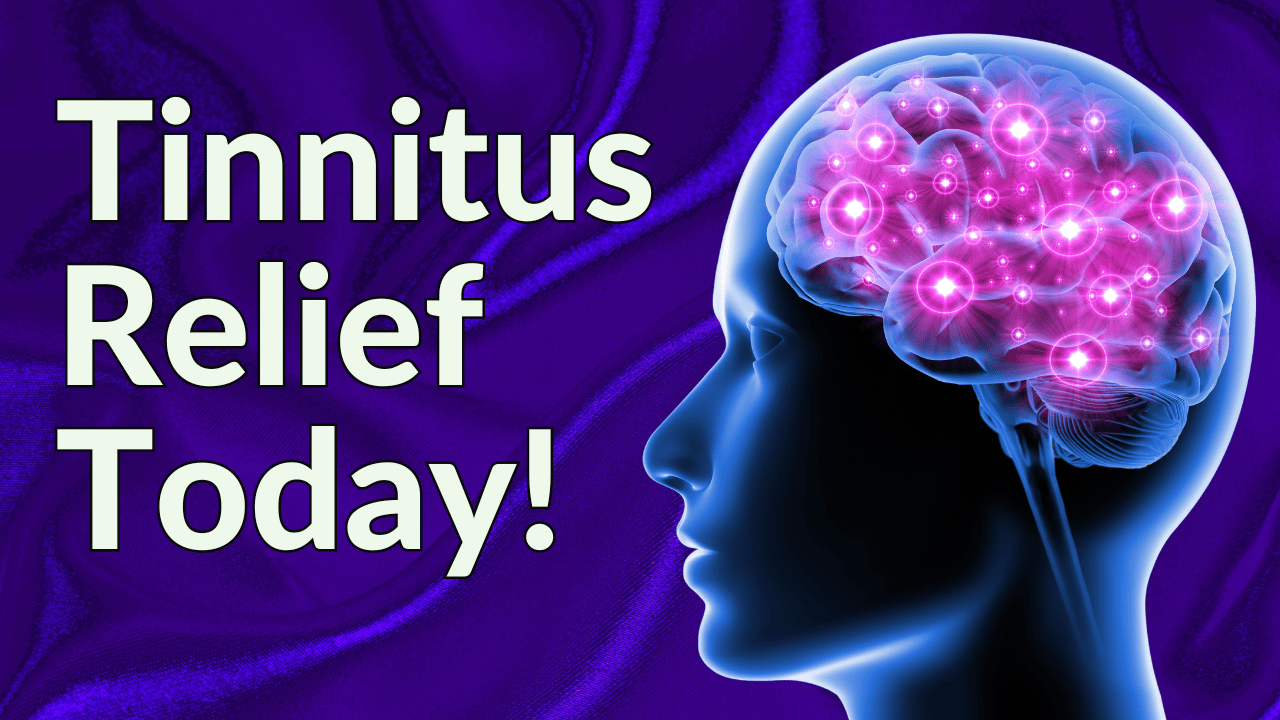Tinnitus is not an autoimmune disorder itself, but is often linked to autoimmune disorders. The precise reason for the ties between chronic tinnitus patients and autoimmune disorders and other disorders elsewhere within the body are not fully understood, but the fact remains that anxiety disorders, chronic fatigue syndrome, and other issues that impact other areas of the body (including the adrenal glands) are often found in patients with severe tinnitus, or in people for whom tinnitus duration is long standing.
What Is Adrenal Fatigue?
Fatigued adrenal glands aren’t formal medical diagnoses, but rather a general term used to describe a group of non-specific symptoms such as body aches, fatigue, nervousness, sleep disturbances, and digestive problems. This term has been developed in part to explain the unexplainable, when there are seemingly related symptoms present that cannot be explained otherwise.
The term has been used as a catch-all phrase for those under long-term mental, emotional, or physical stress. It has ties to autoimmune disorders like Hashimoto’s Disease, though many of these ties rely on anecdotal evidence rather than long-term clinical studies.
"Treble Health helped me reduce my tinnitus by about 80%, and now I can live my life again!"


"Treble Health helped me reduce my tinnitus by about 80%, and now I can live my life again!"
– Steve D.
Book a free consultation to learn which Treble Health solution is right for you. Join Steve and thousands more who have found lasting tinnitus relief.
A recent review of 58 studies concluded that there is no scientific basis to associate adrenal impairment as a cause of fatigue. The authors report the studies had some limitations, as the research used many different biological markers and questionnaires to detect fatigue of the adrenals. For example, salivary cortisol is one of the most commonly ordered tests used to make a diagnosis. The cortisol level, when checked four times in a 24-hour period, was no different between fatigued and healthy patients in 61.5% of the studies. The review raises questions around what should be tested (blood, urine, and/or saliva), the best time, how often, what ranges are considered normal, and how reliable the tests are, to name a few. In essence, there is no formal criteria to define and diagnose adrenal fatigue, making it difficult to determine if it is a high tinnitus related distress in the body, or if it is more of an informal name for a series of unexplained symptoms.
What Do The Adrenals Do?
Adrenals are small glands that make steroid hormones, adrenaline, and noradrenaline. If you have any passing familiarity with the function of hormones in the body, including stress hormones, you will recognize the importance of having adequate levels of hormones in the body. From struggling to wake up in the morning, to experiencing hair thinning and loss, to being unable to regulate temperature, hormonal imbalances are a very real and very critical issue in human health.
Adrenal hormones are responsible for controlling heart rate, blood pressure, metabolism, immune system, stress response, and other body functions. A blunted cortisol response, for instance, can increase psychological stress, deaden certain reactions, and even result in depressive symptoms. An inadequate adrenaline response means that an individual’s stress hormone production is inadequate, resulting in either increased anxiety and depressive symptoms, or possibly anhedonia.



There are two adrenal glands, and each one sits atop a kidney. They are shaped similar to triangles, and they contain two different regions, which are used to create different hormones. There are different conditions that can lead to incorrect functioning of the glands, which can increase or decrease subjective stress levels and lead to a host of ailments, which may or may not include tinnitus perception.
What Are The Symptoms Of Adrenal Fatigue Syndrome?
Because adrenal fatigue is not recognized as an official condition, it can be difficult to definitively identify the symptoms associated with the issue. Nevertheless, some of the more common self-reported symptoms include the following:
- Fatigue
- Body Aches
- Trouble Falling Asleep or Waking Up
- Salt and Sugar Cravings
- Unexplained Weight Loss
- Low Blood Pressure
- Lightheadedness
- Hair Loss
- Skin Discoloration
Provided that the glands are not making enough hormones, whether that is said to be due to chronic stress, growths on the glands, or a recognized disorder like Addison’s Disease (a disease of the adrenals), blunted cortisol reactivity and insufficient adrenal hormones can cause any one of the symptoms above (or a combination of them). Although these symptoms are not directly related to tinnitus sufferers, they can come alongside these individuals, increase perceived stress, and further exacerbate symptoms of the condition.
What Causes Fatigued Adrenals?
Those who believe in the condition say that it occurs when people are faced with long-term stress, as their adrenal glands cannot keep up with the body’s need for these hormones. A chronic stress response is said to lead to plenty of issues, including Complex Posttraumatic Stress Disorder (C-PTSD), another condition with ties to chronic tinnitus and increased tinnitus severity. When the body’s adrenal system is overtaxed, the thinking goes, it is eventually unable to meet hormonal demands, and fatigue of the glands results.
When this happens symptoms of adrenal fatigue syndrome begin. Like chronic fatigue syndrome, a high stress response can lead to increases in tinnitus severity, though it is unknown whether or not subjective tinnitus severity is impacted by supposedly fatigued adrenal glands, or come as a result of other issues related to high stress, such as Post Traumatic Stress Disorder, high blood pressure, cardiovascular issues, and more.
What Can Improve Adrenal Fatigue?
Again, because the condition does not have a dedicated recognition, determining the correct course of action can be challenging. Nevertheless, some have contended that lifestyle changes are useful to mitigate symptoms. Cutting out smoking, alcohol, and drugs are often considered among the greatest first steps to take, if they apply to your situation, because they dramatically improve bodily health. From there, beginning an exercise routine, eating healthy, whole foods, and developing healthy sleep hygiene can all help reduce perceived stress, and even positively impact psychosocial stress.
At this time, the FDA does not recommend any particular supplements or vitamins for treatment of the condition. Some have recommended utilizing various supplements linked to improving sleep and psychological stress, though frontline options requiring only lifestyle changes are typically viewed as the best options, as they do not require prescriptions or potentially problematic additions to an individual’s routine.
How Are Tinnitus and Adrenal Fatigue Related?
High stress has been linked to tinnitus, and since adrenal fatigue is related to stress response, it is believed that those with adrenal fatigue may be at higher risk of developing tinnitus. An elevated stress hormone may, over time, negatively impact auditory brainstem responses, leading to a diagnosis of tinnitus. A self-fulfilling cycle continues, as it is often that tinnitus distress leads to further stress-induced symptoms, and tinnitus characteristics increase.



Another study demonstrates the impact tinnitus related distress has on stress, and the impact stress has on tinnitus. Although these studies do not offer conclusive results or treatment options, they do highlight an important finding: tinnitus sufferers and anxiety sufferers are often bedfellows. Psychosocial stress was shown to significantly impact the health of the body, which includes hearing loss and subsequent tinnitus presence.
How To Manage Tinnitus Related To Adrenal Fatigue
Holistic strategies to manage stress–think meditation, exercise, mindfulness, breathing exercises, and healthy sleep hygiene–may all help reduce stress and in turn improve fatigued adrenals. Because the current research shows that stress-related issues like sleep deprivation, high cortisol levels, and emotional exhaustion can all impact a hearing test, patients suffering with tinnitus may benefit from lifestyle interventions to improve health and wellness, including stress responses, to act as a mitigating factor in tinnitus symptoms, or a source of improvement for the auditory system.
Cognitive Behavioral Therapy and Tinnitus Retraining Therapy can be helpful ways of improving symptoms of tinnitus while also teaching you better ways to cope with stress. Both have been used as frontline tinnitus treatments, as both can limit chronic tinnitus symptoms, and chronic stress both related to tinnitus (as in the case of TRT), and unrelated to tinnitus sufferers. Provided that fatigued adrenals are not at the root of tinnitus patients’ symptoms, CBT and TRT can both be useful ways to address symptoms, limit their reach, and improve emotional and mental responses to the sound of ringing, buzzing, or humming described by tinnitus patients.
Conclusion
Chronic tinnitus patients often experience a great deal of perceived stress in response to their tinnitus symptoms. While tinnitus may be related to fatigue of the adrenal glands, the lack of recognition of the condition makes it difficult to determine whether the two are truly linked. Nevertheless, one of the primary features of the condition is fatigue, mental health declines, and a breakdown of healthy function elsewhere in the body, including the ears. From psychosocial stress to posttraumatic stress disorder, the ears can experience a slew of negative effects when stress is present in high amounts, and goes uncontrolled for an extended period of time. While managing stress may not reverse the symptoms of tinnitus or even fatigued adrenal glands, limiting and managing your stress response can limit the amount of inflammation present in the body, reduce the risk of developing tinnitus and other auditory and neurological processing disorders, and generally improve health and quality of life.
Next Step: Book Free Consultation
- 75% of patients reduced their tinnitus within three months after following our recommendations.
- "I feel like Treble Health literally gave me my life back." - Randy S. (verified customer)
- Join thousands of people who have reduced their tinnitus after scheduling a free consultation.




















